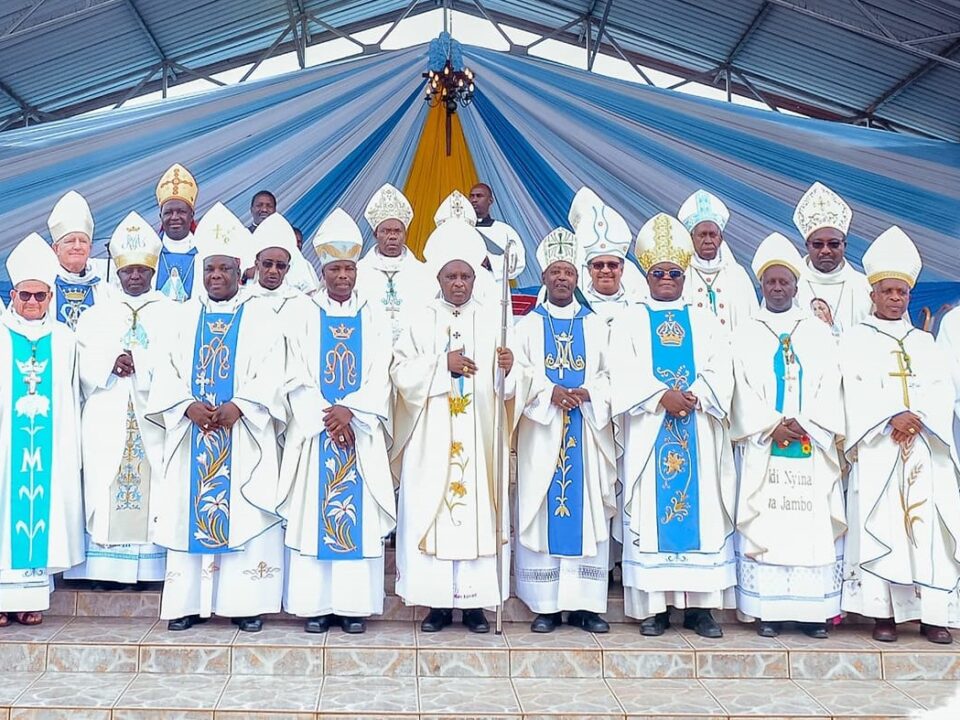- Contact us on - Contactez-nous sur - Contacte-nos em
- +233-30-277-8867/8
- +233-30-277-2548
- secam@secam.org
Solidarity Message from MISEREOR to SECAM
Solidarity Message from MISEREOR to SECAM
on the occasion of the SECAM Plenary Assembly
«The Family in Africa, Yesterday, Today and Tomorrow: In the light of the Gospel»
held in Luanda (Angola) from Monday 18th to Monday 25th July 2016
Eminences,
Excellencies,
Fathers, Brothers and Sisters of the consecrated life
dear sisters and brothers in Christ,
ladies and gentlemen
In the name of MISEREOR, the German Catholic Bishops’ Agency for Development Cooperation, I wish to thank you for your invitation and the privilege to be present during the SECAM Plenary Assembly on «The Family in Africa, Yesterday, Today and Tomorrow: In the light of the Gospel».
Our Directors, the Heads of Africa and Middle East Department and the whole Staff of MISEREOR offer you their greetings and the assurance of their prayers for a successful Plenary Assembly.
From its very beginning in 1958 MISEREOR has enjoyed a strong partnership with the Catholic Church in Africa. In this perspective, we have a very long common history based on our shared principles, namely the preferential option for the poor and the endeavour of working towards “poverty eradication, sustainable development and relevant response to all issues affecting God’s family”.
It is on this basis that Misereor supports the efforts of the local Church in Africa and of SECAM in their work for Development, Justice and Peace. Africa has always had a special place in our work and being.
In our common projects the issue of family and with this the relationship between men and women, parents and children, sisters and brothers, grandparents and children is of high importance.
We are aware of the concrete and different contexts in which families in Africa are living. So Pope Francis deepened our reflection in this regard with his recent Encyclical Laudato si putting a focus on “integral ecology”. He calls us to overcome historically grown anthropocentrism by the idea of interconnectedness of all beings and within the creation as such. This insight into interconnectedness leads us to a deeper understanding of the roots of todays challenges: “Ecology studies the relationship between living organisms and the environment in which they develop. This necessarily entails reflection and debate about the conditions required for the life and survival of society, and the honesty is needed to question certain models of development, production and consumption. It cannot be emphasized enough how everything is interconnected.” (LS 138)
Successful work in Development, Justice and Peace actually requires consciousness about the respective roles and responsibilities of each member of the family who are, as we heard, at the same time members of the society. For Misereor and its partners the family and in particular the relationship between men and women is a core issue. Both, women and men have a crucial role with regard to Development, Justice and Peace. Misereor and its partners therefore have developed and realized joint projects in order to empower women and men so that both can contribute fully to development processes in their respective communities.
Misereor is also aware of the different local traditions and the different challenges in our continents that are also shaping our understanding of the evangelization of the family. We have to procure for inculturated solutions, as Pope Francis says in Amoris Laetitia 3; solutions that respect these traditions and that at the same time allow the full evolvement of human dignity and rights to enjoy the joy of love.
Concrete: Agricultural projects as well as water projects, education n projects, human rights projects or projects focusing on peace and reconciliation require a conscious approach in which every person – independently of their race, religion or sex, can commit oneself in order to succeed.
Taking into account that women all over the world are deprived of their equal human rights and that oftentimes they are victims of discrimination, violence and abuse, Misereor and its partners have made many efforts over the years in order to strengthen women’s rights and allow them to participate equally in development processes. Within various Development Projects, Justice and Peace Projects the Church has over the years gained an enormous wealth of experiences – both successes and learning experience with regard to the relationship between men and women. On our joint path we have – amongst many other lessons – learnt that a gender-sensitive approach – be it within the family or civil society– requires a conscious approach that includes the perspectives of both, men and women, parents and children, sisters and brothers, based on equal rights that allow for a joint participation in processes of Development, Justice and Peace.
As development organization of the Catholic Bishops conference of Germany Misereor feels privileged to participate in this General Assembly. May God’s Spirit and God’s wisdom and his blessing inspire this Congress and may they be with us during our deliberations and our planning the way forward.
Aachen/Luanda, 19.07.2016




